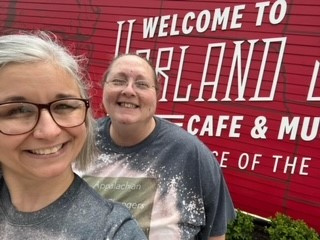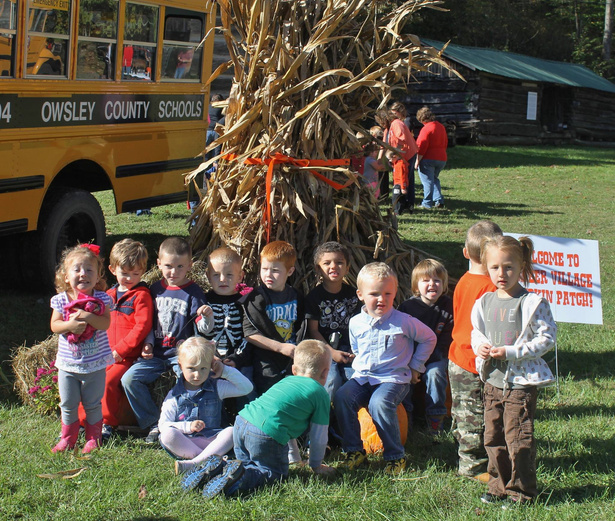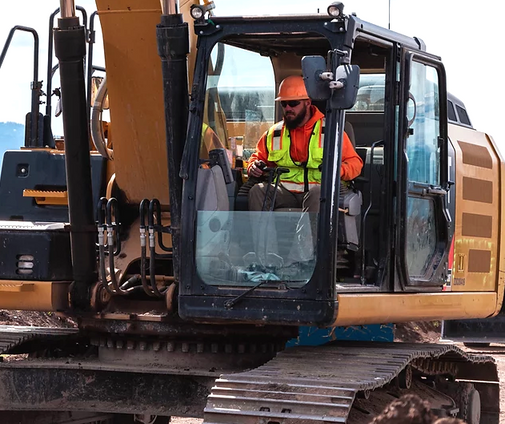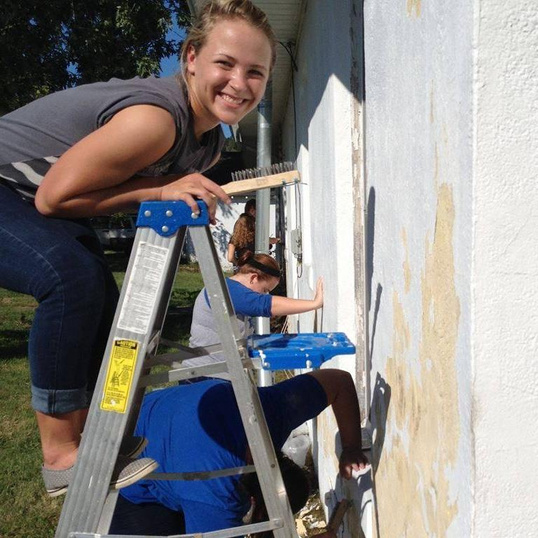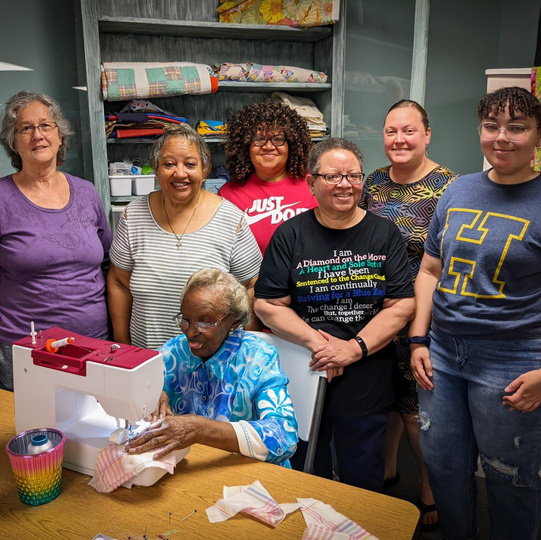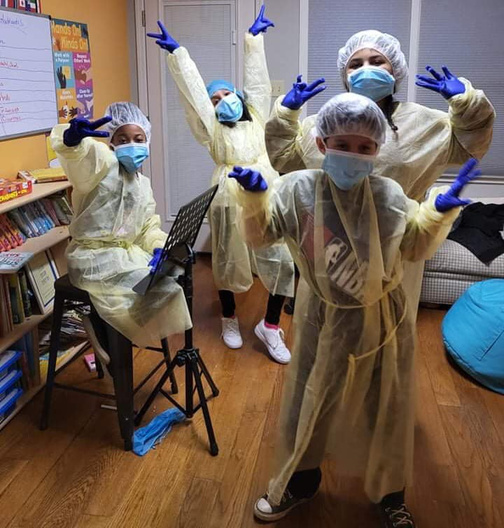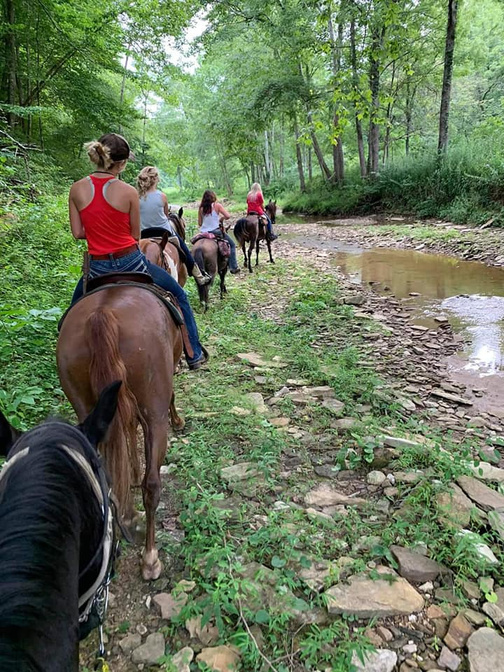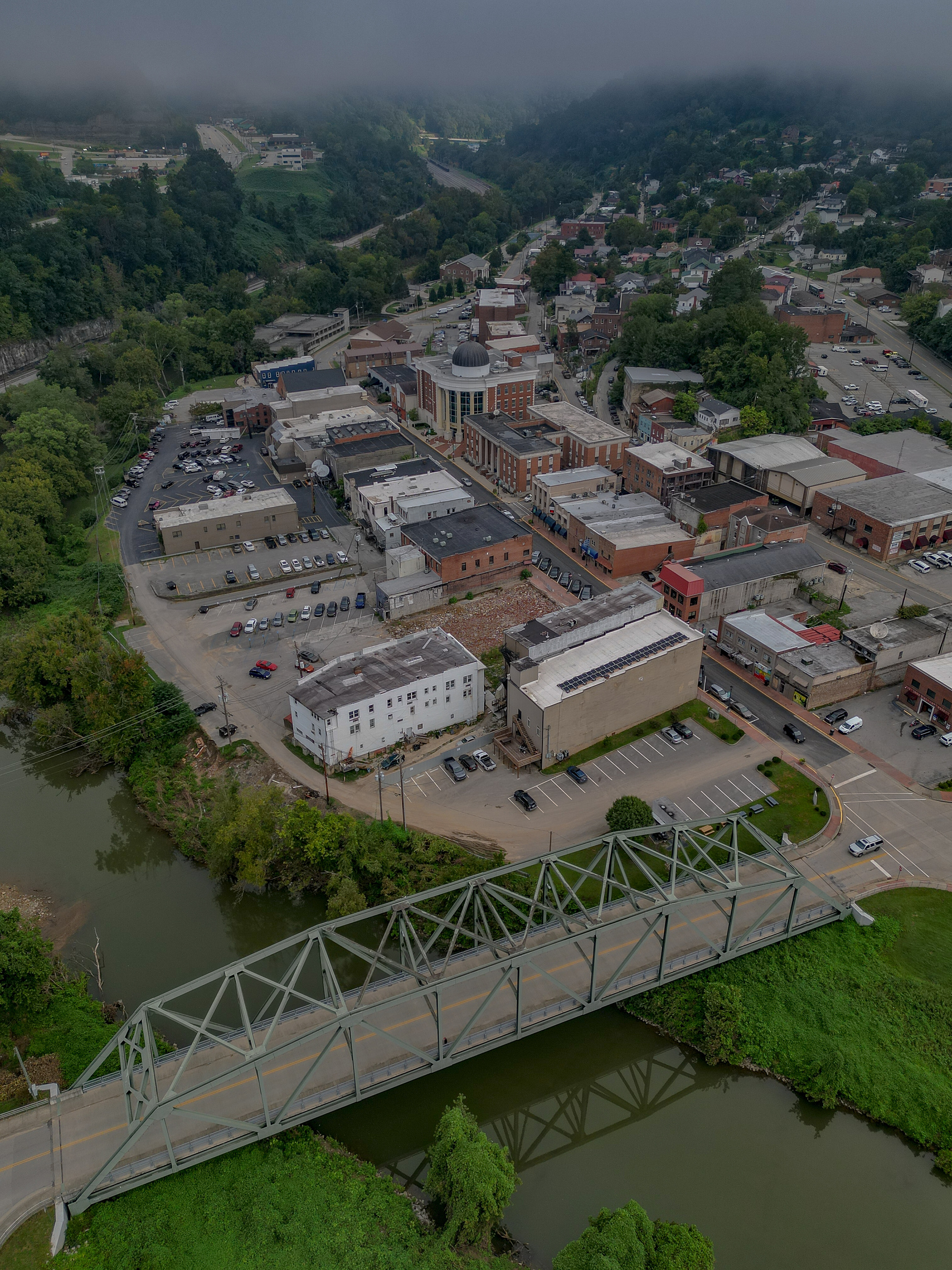
Our Impact in 2022
Dear Readers
We are deeply saddened by the historic flooding that occurred in July 2022 in our beloved Eastern Kentucky. This year’s devastation shattered records throughout several counties and directly or indirectly impacted everyone who calls this place home. Even in the face of a perfect storm, grieving the loss of loved ones, homes, schools and businesses, Eastern Kentuckians have again reminded people across the world of what it means to show up for each other.
The courage of our first responders, the countless examples of neighbor helping neighbor, shelters staffed by tireless volunteers, the determination of people to rebuild their homes and their communities, have all been bright lights to help us see the way forward. The increased frequency and severity of floods across Appalachia has shown in full, tragic detail how climate change is already impacting mountain communities, and what we can expect in the future.
Science tells us that with the increase of atmospheric carbon, warmer air will carry more moisture, driving these extraordinary rain events. As major storms increase in frequency — as they have in 2020, 2021 and 2022 — the time we have to recover and prepare for the next disaster grows shorter and shorter. We cannot ignore the connection between these events and the legacy of coal mining in this region. Decades of surface mining and mountaintop removal have stripped away the sheltering forests that once cloaked these hills and less rainfall can be absorbed on the compacted earth. Creek channels already clogged from mine runoff are quickly overwhelmed by the torrential rains. Rebuilding and reclaiming land for resilience becomes ever more important.
As we move from emergency response to beginning the long road to recovery, we are seeing help on the way. Some of this is in the form of government and philanthropic response to the current moment. But beyond that, after decades of effort, we see important new federal policy supporting a just transition to a new economy. We see new funding for clean energy and for rebuilding infrastructure in our communities. We see businesses, local governments and private citizens embracing new ways of thinking about our economy and our future. This report looks back on a year of great challenges and great accomplishment and celebrates the work of our teams, our clients, our affiliates, partners, and allies. We are glad to share these stories and invite you to join us as we look forward to a future in which the people and places we serve not only survive, but thrive.
Sincerely,
Peter Hille, President

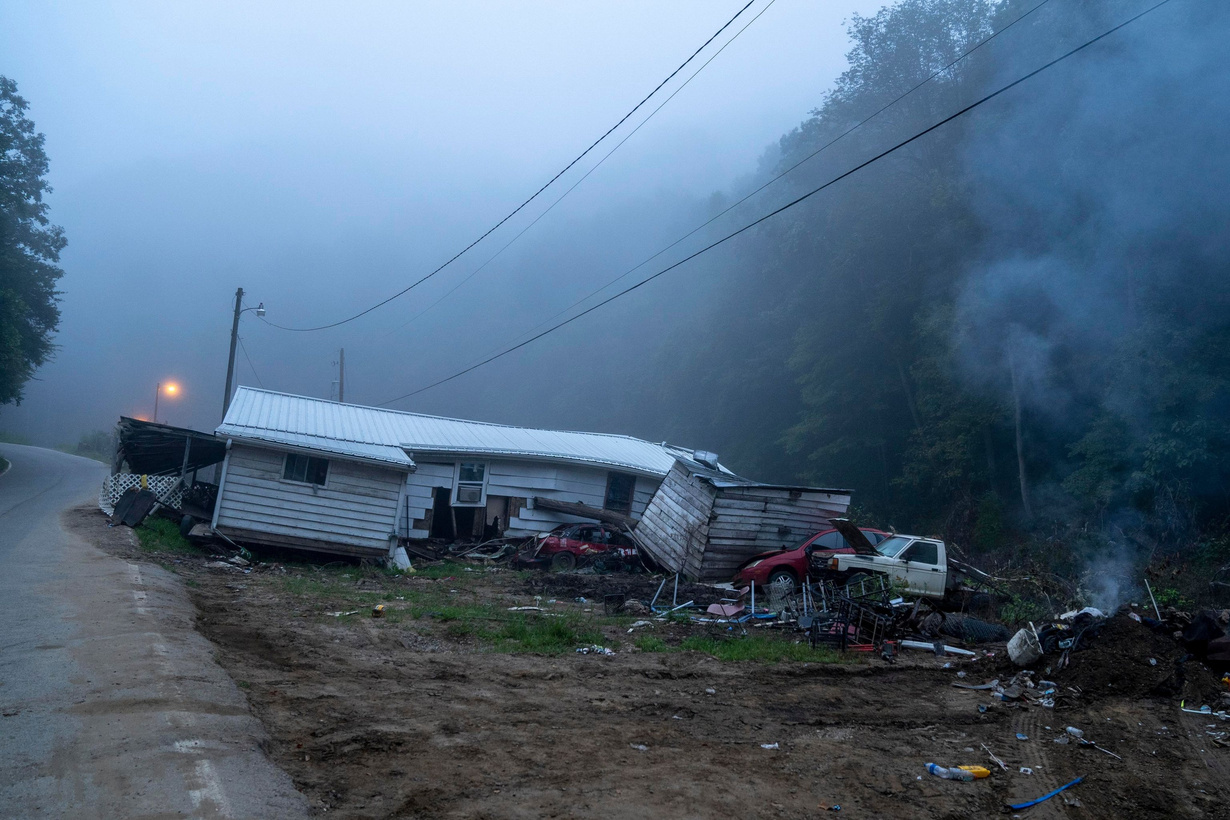
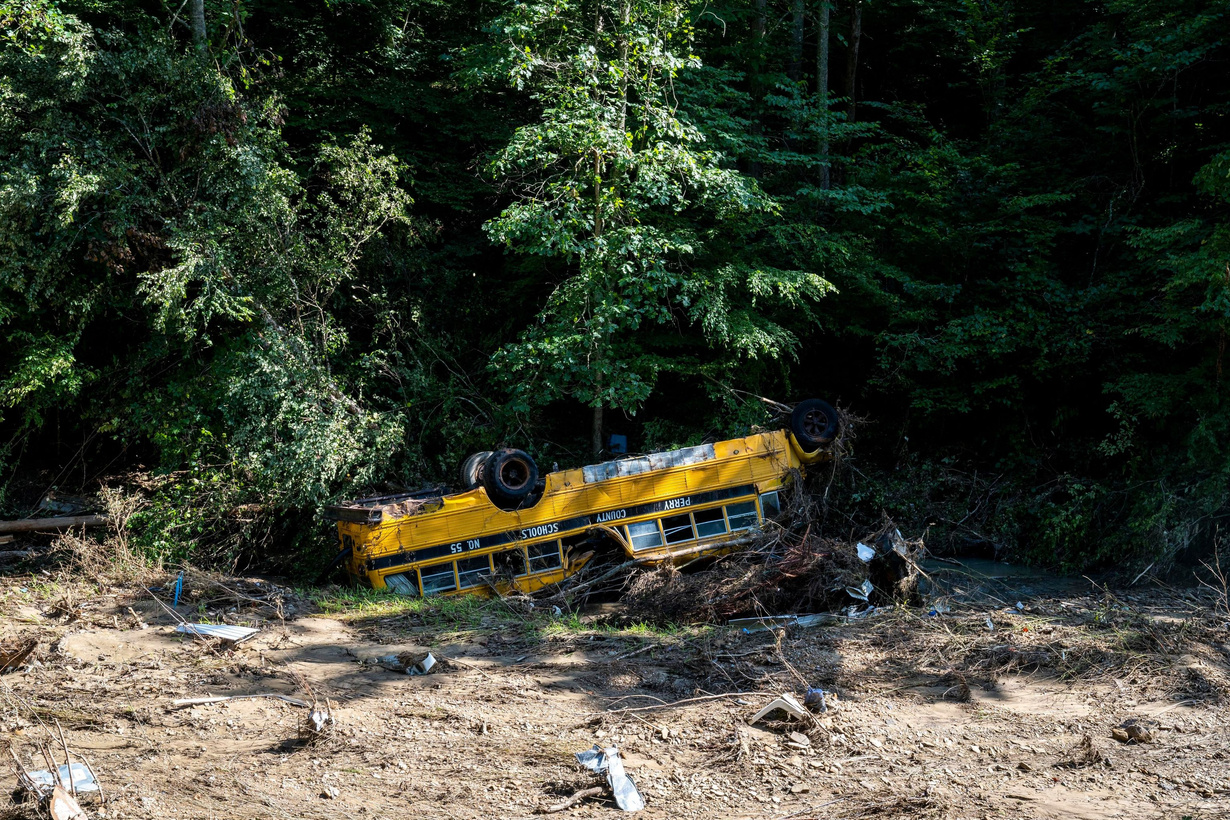
Emergency solar generation is helping to power the Buckhorn community’s flood recovery efforts in Perry County.
When initial estimates suggested water would not be restored for several months, our Energy Team worked with the Footprint Project, Solar Energy Solutions and Leslie, Knott, Letcher and Perry (LKLP) Community Action Council to set up this solar battery-charging system to power laundry facilities, showers and a water filtration system.
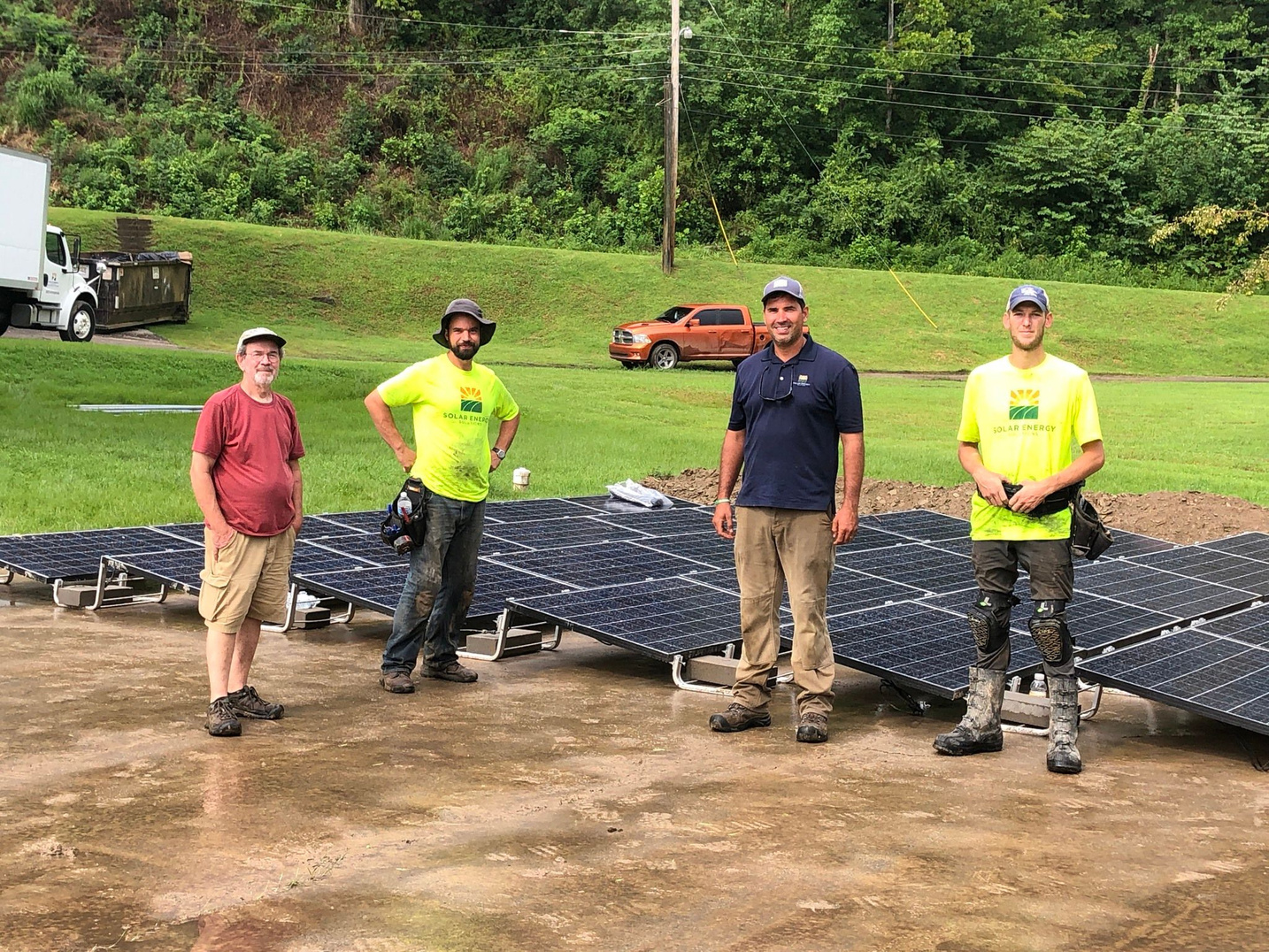
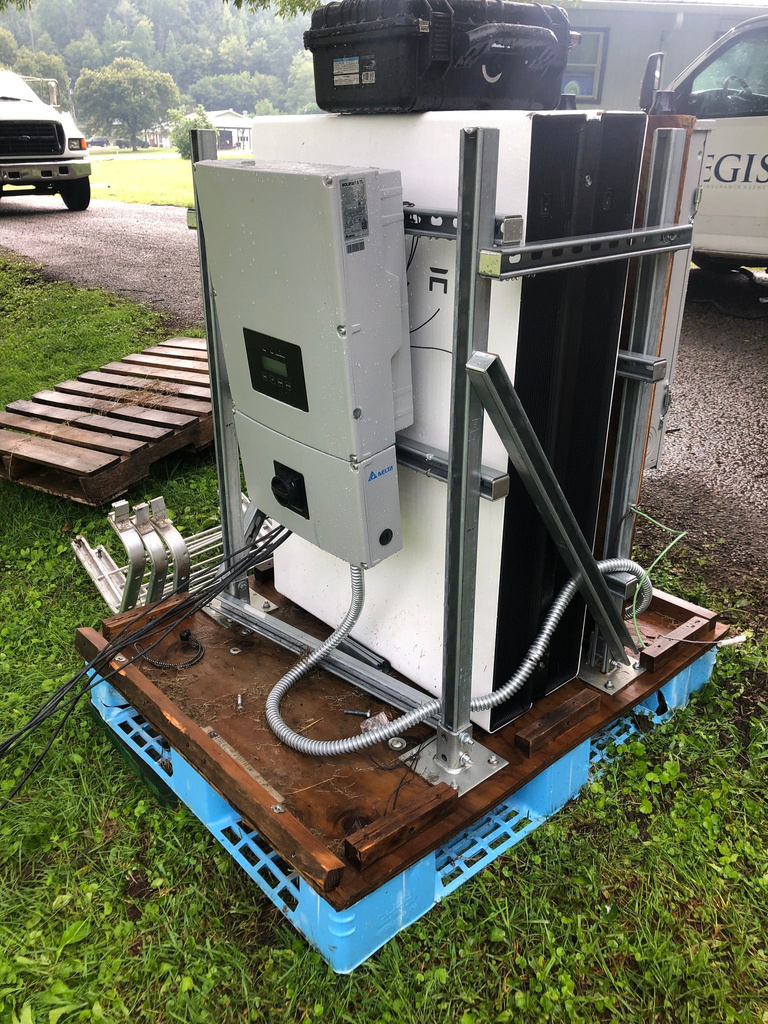
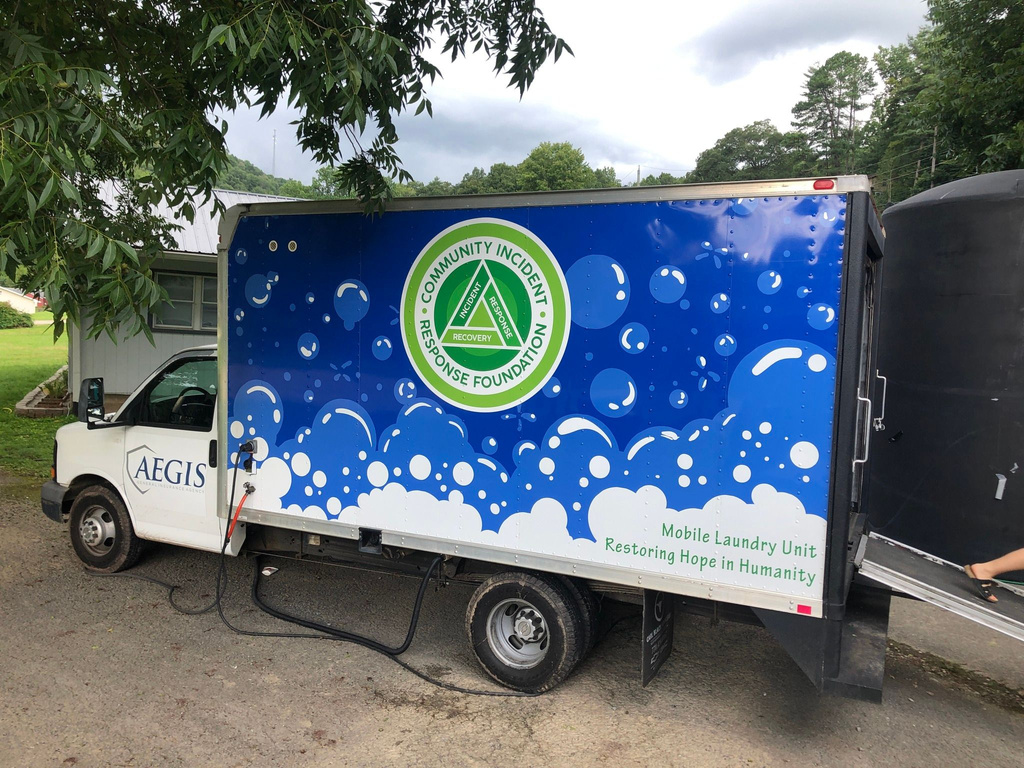
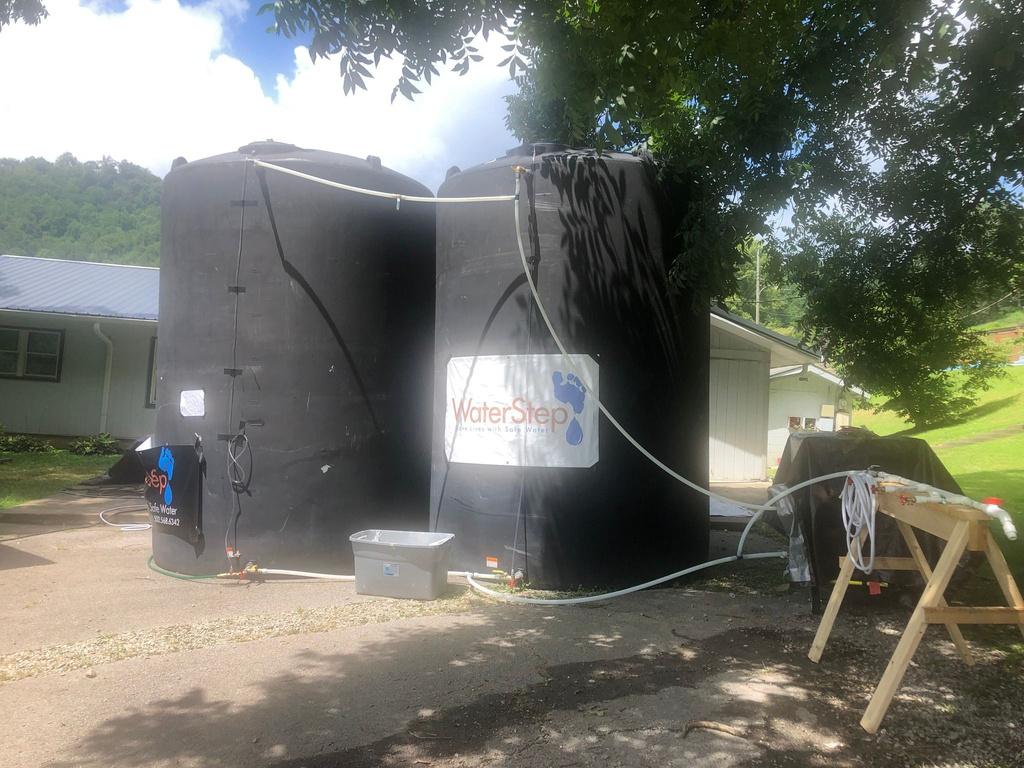

In 2022...
We Invested in Small Business in New Ways
In response to the pandemic, the Mountain Association became a Paycheck Protection Program (PPP) lender in March 2021. These fully-forgivable federal loans were designed to support businesses and organizations through COVID-19. When the program ended on May 31, we had processed a record 409 loans, and deployed more than $6 million, averaging about $15,000 per PPP loan. This year, we worked through the extensive forgiveness documentation process with each of the borrowers.
We are working with an outside organization, FUND Consulting, to guide our equity planning. This journey has helped us explore the inevitable relationships between conventional financing practices and the exploitative aspects of capitalism. FUND helped us take a deeper look into our lending program and worked with our team to identify areas for improvement, such as how to take a trauma-informed approach in discussing financial history with clients, how to incorporate more character-based lending elements into our underwriting processes, and more. We have a lot of work to do, but we are proud of the team’s initial efforts to fundamentally shift our lending practices.
Impact
473 jobs created or saved
$8.3 million invested in 409 businesses or organizations
98% of PPP loans fully
forgiven
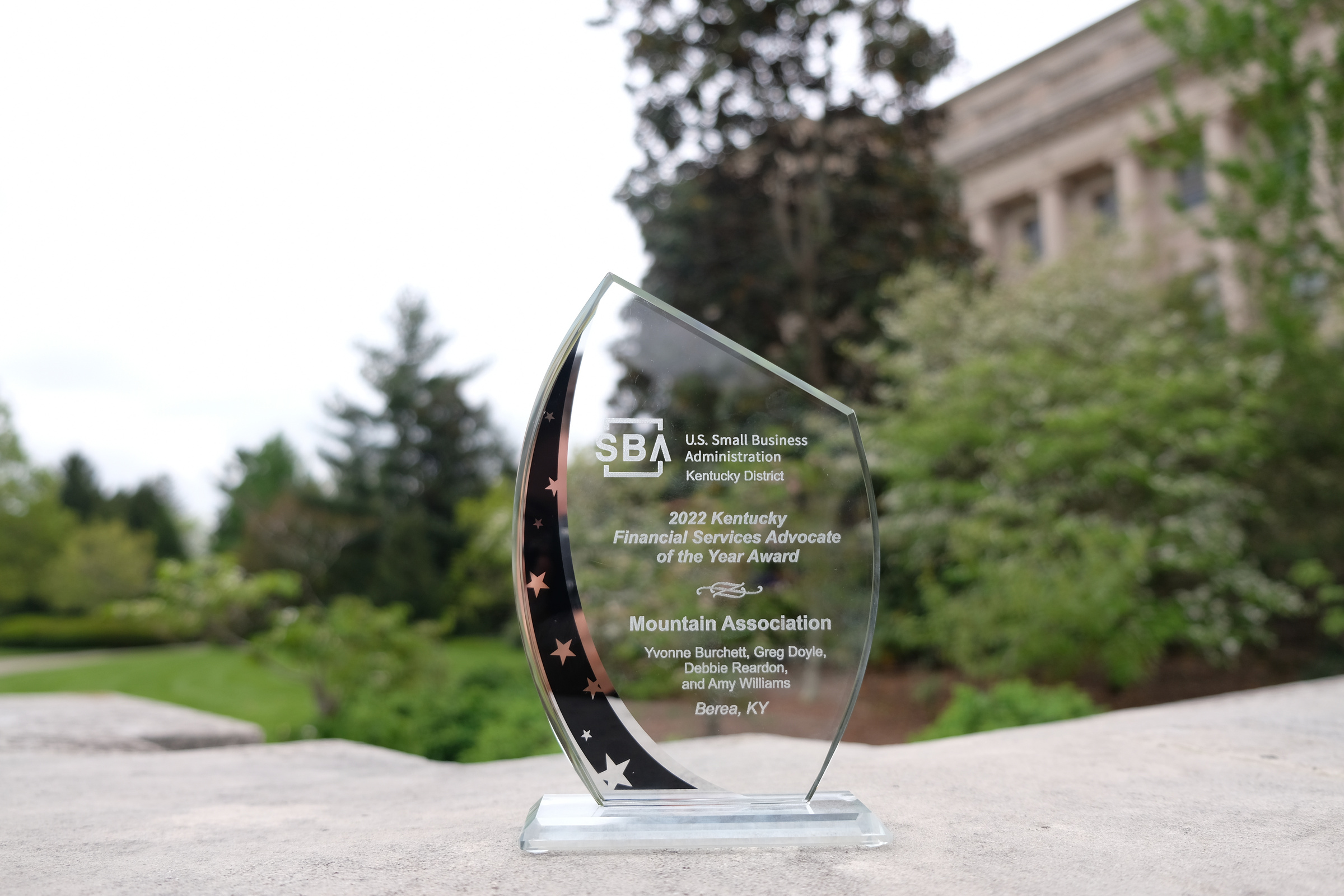
We are also proud to share that the team was recognized for all of this work on a state level, receiving the Financial Services Advocate of the Year award from the Kentucky Small Business Administration in May 2022.
We Continued to
Change for the Better
We are proud of our organization’s efforts over the last 45 years to support small businesses, build key market sectors and test new ideas. However, in recent years, we have realized just how much work we need to do to truly welcome all people into the process of building a new, just economy in Appalachia.
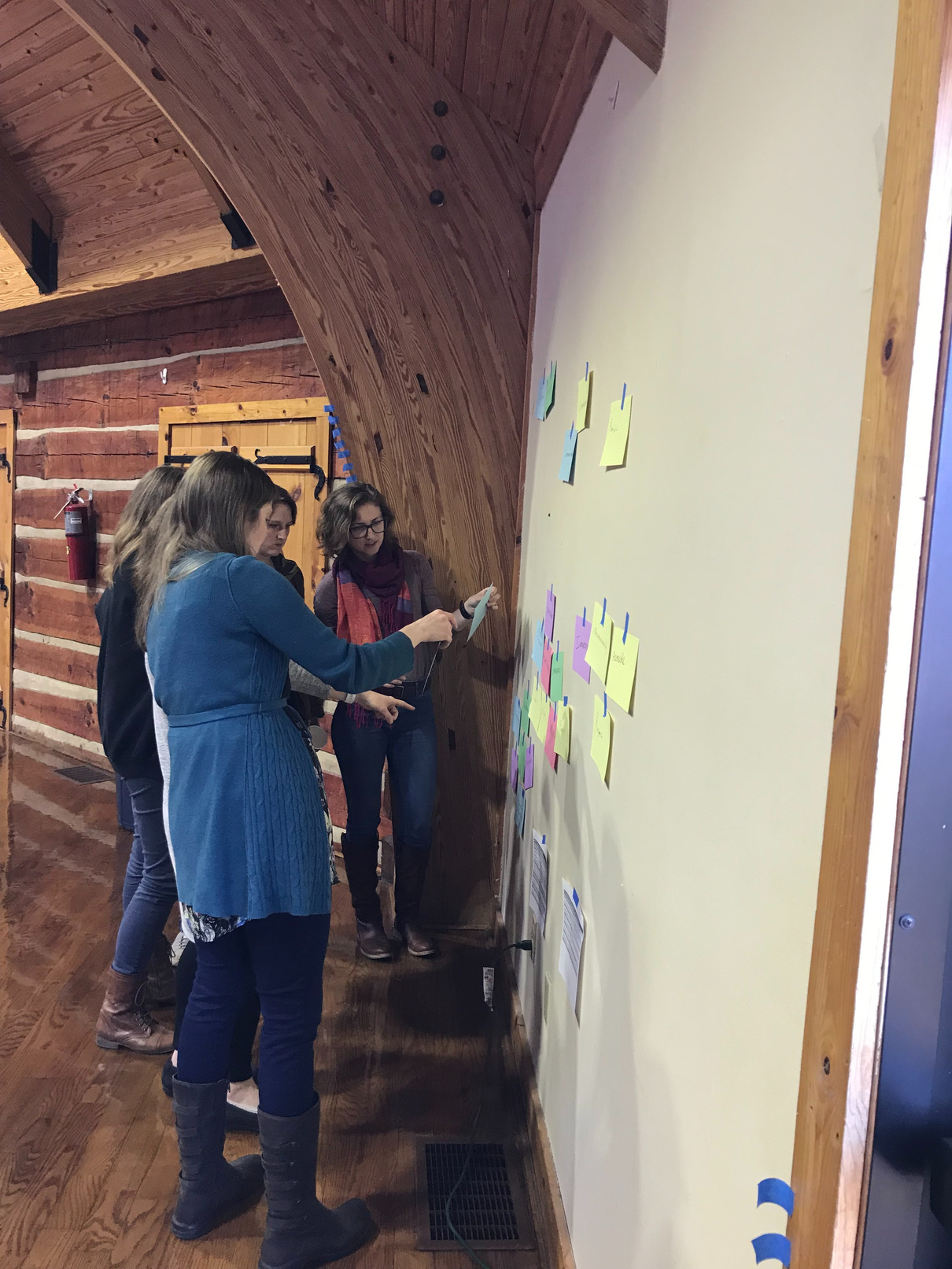
In 2018 we began an intentional journey to recenter ourselves around our core goals of diversity, equity, inclusion and accessibility (DEIA). Since then, we’ve grappled with many necessary questions.
An ongoing staff-wide training series has brought us face to face with the violent and oppressive legacy of exploitation, oppression and extraction in our society, culture, and in ourselves. Through this, we have explored many topics, including the historical context of privilege and erasure, the construction of whiteness and race, intersectionality, gender and sexuality, class and capitalism, trauma, and ableism.
Underserved
Populations sharing a particular characteristic or geography that have been systematically denied full opportunity to participate in aspects of economic, social and civic life.
While we did not create our society’s inequitable systems, it has become clear that our organization has benefitted from them in many ways. We have committed to making major changes to address identified problems. In 2019, we had an equity audit of our communications methods and materials.
In an overhaul of our communications in 2020, which included our name change from MACED to Mountain Association we reduced the number of words per sentence, used plain language over jargon, improved translation options, and designed materials to ease readership for vision or other disabilities. Later that year, we had an outside consultant complete an organizational equity audit, resulting in the development of a comprehensive equity plan to address issues found. We began implementing the plan in 2021 and continue today.
The work we have done thus far to better understand our privilege and power has not always been easy, but it has been transformational in many ways – for staff personally and professionally, and for the work itself. While we have always included DEIA in our core values in some way since our founding, we haven’t always successfully centered ourselves on those values, and we believe our work has suffered for it. We cannot move forward from this point without a DEIA commitment leading all that we do.
We are dedicated to changing the way we operate to make that true.
Significant Milestones in 2022
Created a new outreach position to help us connect with and better serve systemically underserved people and communities
Reviewed compensation across the organization and began a process to improve salary equity and transparency, including listing salary ranges in all of our job listings
Began developing a specific equity action plan for our Lending Team
Defined what “underserved” means in Eastern Kentucky in terms of our organization’s mission
Formed an internal Equity Team and began including specific DEIA goals in our work plans, for which there are regular checkpoints throughout the year
Worked with our Board of Directors to form a Development Committee that focuses on DEIA on our board
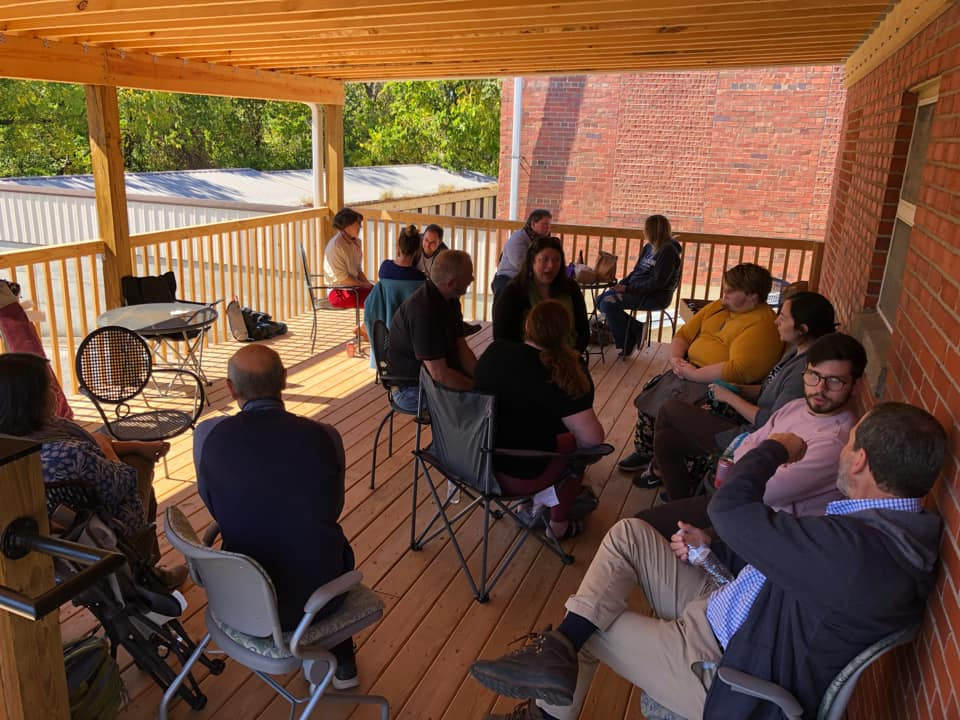
FEATURE
Lending to Support Our
Partners in Affordable Housing

For many families across the country, skyrocketing housing prices are top of mind. There are many factors at play in this housing market crisis. Many areas have not been building homes fast enough to accommodate for population growth, while construction costs for new homes are higher than ever and supply chains more unpredictable. At the same time, more investors have been snapping up property to capitalize on home and rental prices. Nonprofit housing groups building affordable housing in Eastern Kentucky are not exempt from these pressures.
Frontier Housing has been working since 1974 on affordable housing solutions in Eastern Kentucky. For years, they focused on building new homes in their 16-county service area. Now, with construction costs so high, they are purchasing more homes in need of repair in order to complete the repairs and resell at an affordable price. However, they are facing increased competition from investors when making these purchases, particularly in the Boyd and Greenup county areas near the populous city of Ashland.
They realized they needed more asset liquidity in order to compete as cash buyers. Frontier and Mountain Association looked at options for restructuring their past debt in order become more attractive to large-scale lenders. With a $1.3 million loan from Mountain Association, they were able to recapitalize the organization and pay off several outstanding loans. This allowed them to have better cash flow and do better than just break even.
Just a few months after closing the loan with Mountain Association, they were able to secure extensive capital from a major lender to focus on housing development in the Ashland area.
“If we hadn’t been able to work out a solution to lower our current asset-to-liability ratio, that level of investment wouldn’t have worked out,” Manning-Beavin said. “Now we can respond to opportunities in the growing Ashland market faster because we are a cash buyer, rather than having to work out project specific financing each time a lot or home comes available for purchase.”
“We are now seeing historic gaps between the cost to construct and what the home appraises for. For us, our costs may be $210,000 to build a new home, but it may only appraise for around $170,000.”
- Tom Manning-Beavin, President and CEO of
Frontier Housing
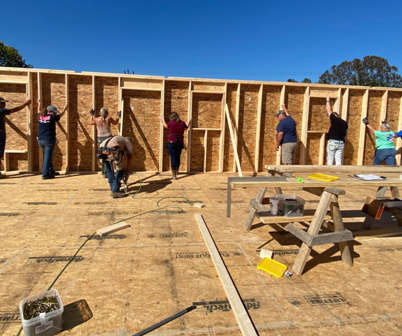
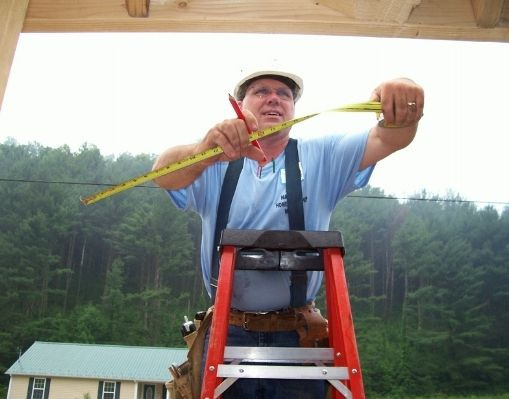
A History of Unique Financing Solutions
Frontier Housing and Mountain Association have also collaborated to find a financing solution that lessens the widening difference between the cost of construction and the appraisal value of a home. Mountain Association’s program partner, Fleming-Mason Electric Cooperative, began offering $5,000 loans to new homeowners for HVAC and energy efficiency upgrades that are repaid through the utility bill each month via Mountain Association’s “How$martKY” program. “This has made these gaps much more workable for our organization and the homeowners,” Manning -Beavin said. “We have some resources and subsidies to offer homeowners, but they are finite. Some are also not eligible for certain grant programs because their income exceeds the thresholds. This option isn’t income dependent, [and] the loan doesn’t fall on the borrower if they chose to move out of the house; it stays with the home.”
This is a unique way How$mart has allowed people to improve their housing situation. The Mountain Association created the program several years ago to address the primary barrier to investment in home improvements—upfront payment. Through the typical use of How$mart, customers pay for home energy upgrades each month out of the average savings generated by the upgrade. The program has allowed utilities to put energy efficiency – and now homes, in general - within reach of more people.
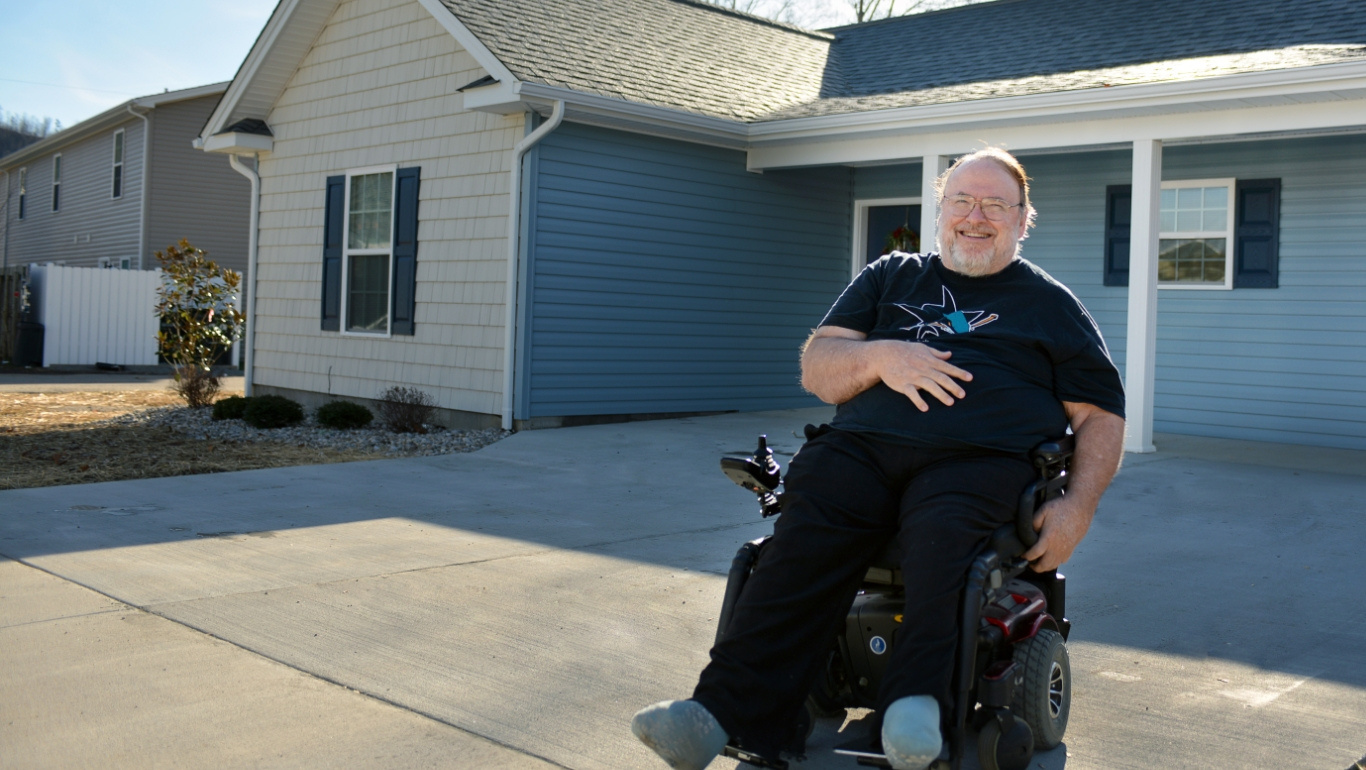
We Connected Small Businesses and
Nonprofits with Expert Consultants
One of the main components of our Business Support program is to pair business owners and nonprofit leaders with a consultant of their choosing for free or reduced-cost customized training around a given need. These projects have ranged from restaurant owners or manufacturers working with experts in equipment layout, to a nonprofit working with a consultant on how to offer more accessible community arts programs, to a community developing a strategic plan for their diversity and inclusion council.
This year, we had a number of business owners and nonprofit leaders work with marketing consultants to better tell their stories. Here are a few highlights:
Impact
41 businesses and organizations strengthened through in-depth business support projects.
1,836 hours of support
provided by consultants
Jeff Chapman Crane
– Letcher County
A few years ago, artist Jeff Chapman Crane worked with consultant Malcolm Wilson through our program in order to develop a website. This year, Jeff and Sharman, his wife and partner, received additional one-on-one training with Malcolm on marketing and social media engagement. Jeff now has commission work through 2023. People who once purchased his work from galleries in New York and Cincinnati 20 to 30 years ago are now rediscovering him through this online presence. Income from these new commissions have allowed them to invest in updated phones and computers to better manage their arts business.
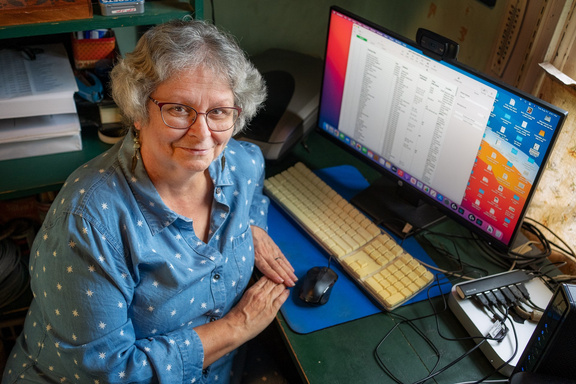

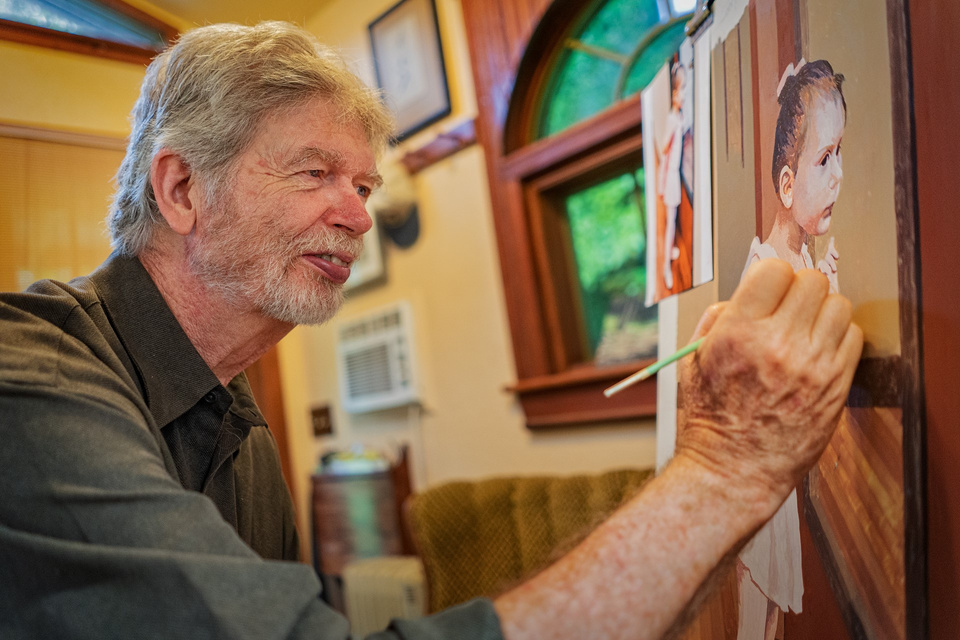
The Galaxy Project
– Carter County
The Galaxy Project is a nonprofit with the mission to provide area youth the voice, resources and direction they need to bring positive and impactful change to their community. They needed a website to share their programs with families and kids. Having recently purchased an old building to remodel into a permanent physical space for the center, they also needed a way to better tell their story as they apply for bigger grants. They worked with one of Mountain Association’s consultants to develop their site and brand. “The website has been a critical piece of this really important stage of our growth,” Director Chelsa Hamilton said. “Now, we are putting together a strategic plan to guide the development of the youth center and to focus our programming.”
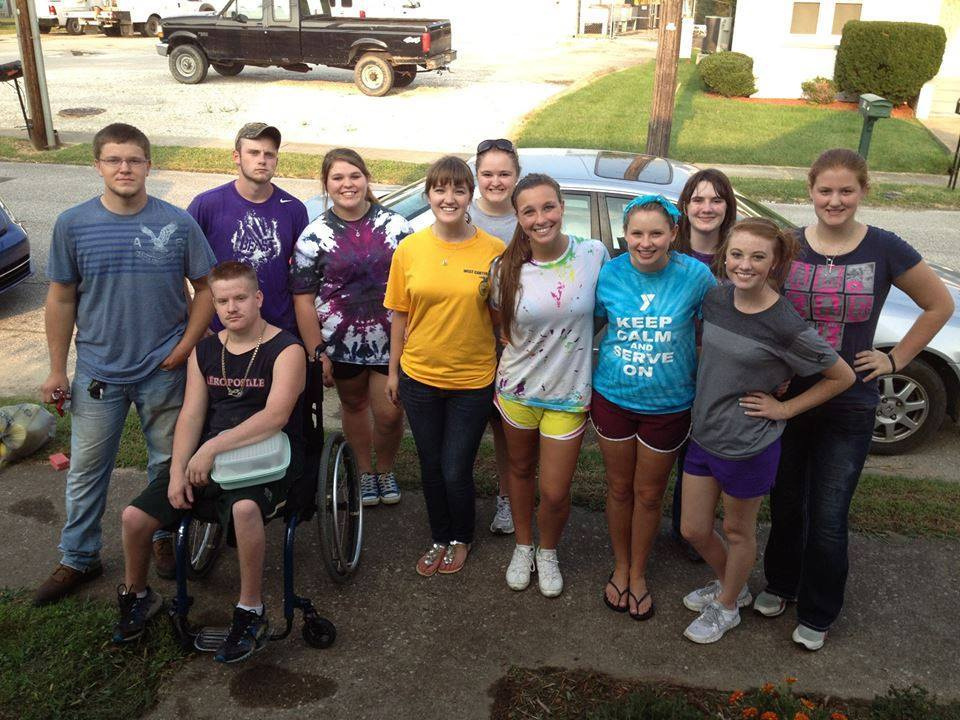
Quilts Made With Love
– Madison County
Michelle Ramsay, owner of Quilts Made with Love, worked with consultant
Lydia Kitts on a professional website and logo for her long arm quilting company. Recently featured on Martha Stewart’s blog, this website presence has been critical to growing her business. “Having a logo and website experience has moved my business from an amateur level or side hobby to professional status,” Michelle said. “I am now able to show potential customers all the services I offer and connect with them in multiple ways."

We Helped Lead the Clean Energy
Movement in Kentucky and the Nation
With the clean energy movement gaining incredible momentum this year, we began collaborations with several new partners on projects ranging from workforce development to solar for schools. We also saw past collaborations come to fruition.
Impact
25 energy retrofits and 13 solar projects underway or complete
$94,146 in new savings found for
businesses, organizations and homes
324 metric tons of carbon reduced through efficiency and solar upgrades
For example, as a member of the Central Appalachian Network, we were pleased to support the launch of the new Solar Finance Fund which subsidizes solar projects for nonprofits, public institutions, and commercial businesses that serve as anchor institutions in their local communities. This year, we also organized a program in Perry County called Solarize Hazard, which is bringing businesses in the area together to get bulk deals on solar panels and installations, as well as other energy savings projects. This project will see several new solar installations in the Hazard area over the coming months.
From recovery centers to community centers, our Energy Team is always out on the road completing energy audits and solar site visits. Along with supporting contractors, we completed 83 audits and solar assessments this year, issuing each client a comprehensive report outlining what upgrades they can make and working with them through the upgrade process. Over the year, we helped clients secure grant funds, rebates and financing to cover their investments in efficiency and solar systems. Our grant application support alone brought in more than $197,000 in grant funding for 16 businesses.
Alongside this work in the region, we continued to work with a coalition of Kentucky organizations and citizens to advocate for fair energy policy in the state. This has resulted in key decisions by the Kentucky Public Service Commission over the years, including the recent decision to uphold solar net metering at a fair rate. This year, the coalition branded itself as Kentuckians for Energy Democracy and began a campaign to build awareness around how everyone can have a say in setting utility rates and influencing climate change action by participating in the Public Service Commission’s public process. In addition, we are currently working on formal interventions in three Integrated Resource Plans. The Public Service Commission requires utility companies to submit these plans which outline both anticipated energy demand and how they plan to supply that energy over a 3-year and a 15-year period. We believe that engaging in these plans is an effective and critical way to advocate for fair rate structures, energy efficiency programs that benefit ratepayers, and climate change mitigation.
At a federal level, our team continues to help lead efforts of the Rural Power Coalition, which is working on policies to transform rural electric cooperatives and their communities by speeding the retirement of fossil fuel generation and investing in energy efficiency, renewable energy, broadband and energy-bill relief. Their hard work led to the historic provisions for rural electric cooperatives being included the Inflation Reduction Act, which was signed into law in August 2022.
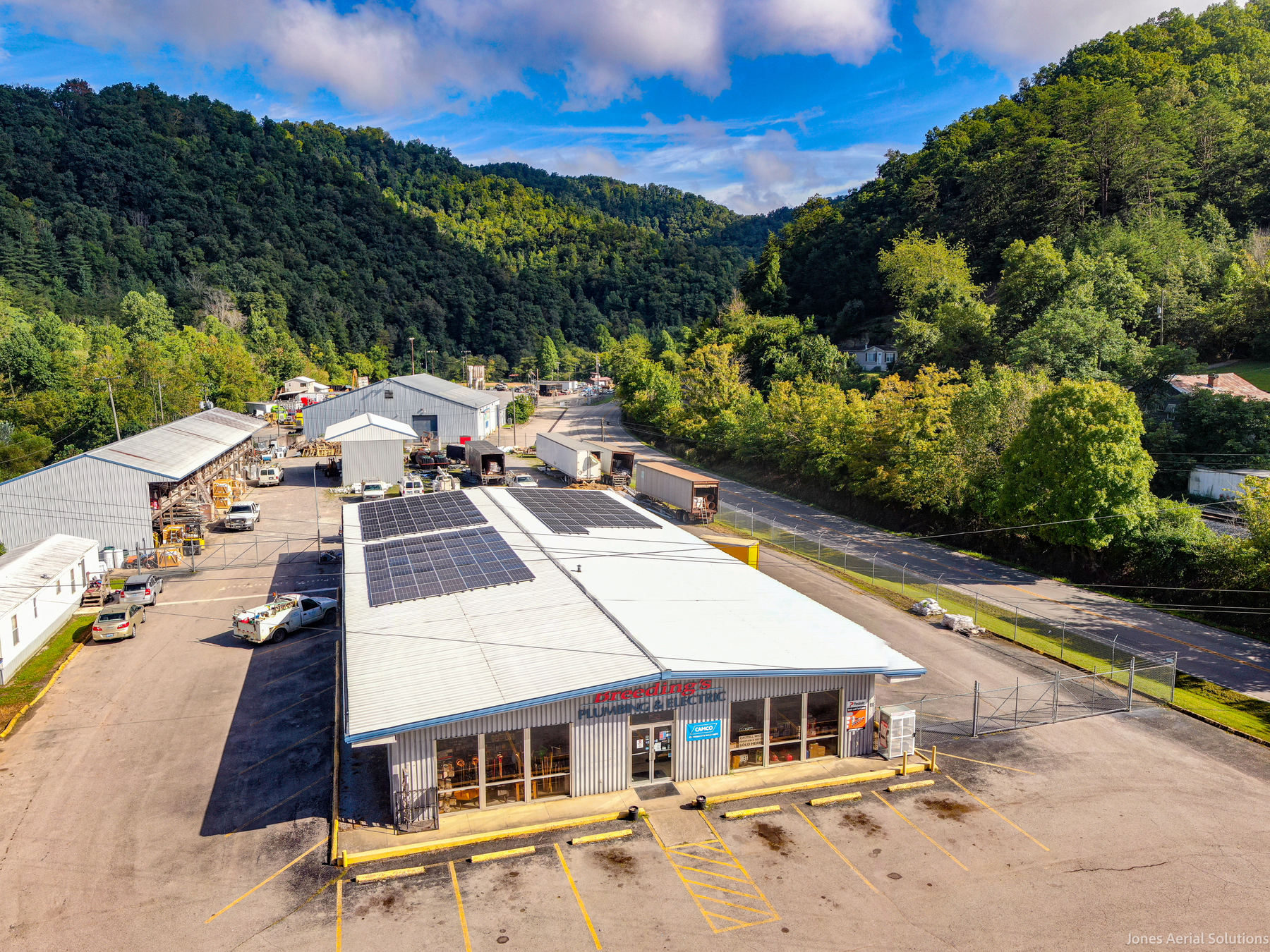
FEATURE
Energy Savings Puts
More Food on the Table
“If we save a thousand dollars on our bills, that’s eight thousand meals,” says Mike Pope.
Pope is the Maintenance and Food Safety Lead for God’s Pantry Food Bank which serves 50 counties in Central and Eastern Kentucky out of 5 warehouse locations and by working with more than 450 food pantries and meal programs. With more than 250,000 food insecure individuals in their 50 county service area, every dollar counts.
Seven Eastern Kentucky counties are in the top 25 US counties with the highest overall food insecurity.
- Report from Feeding America, 2021
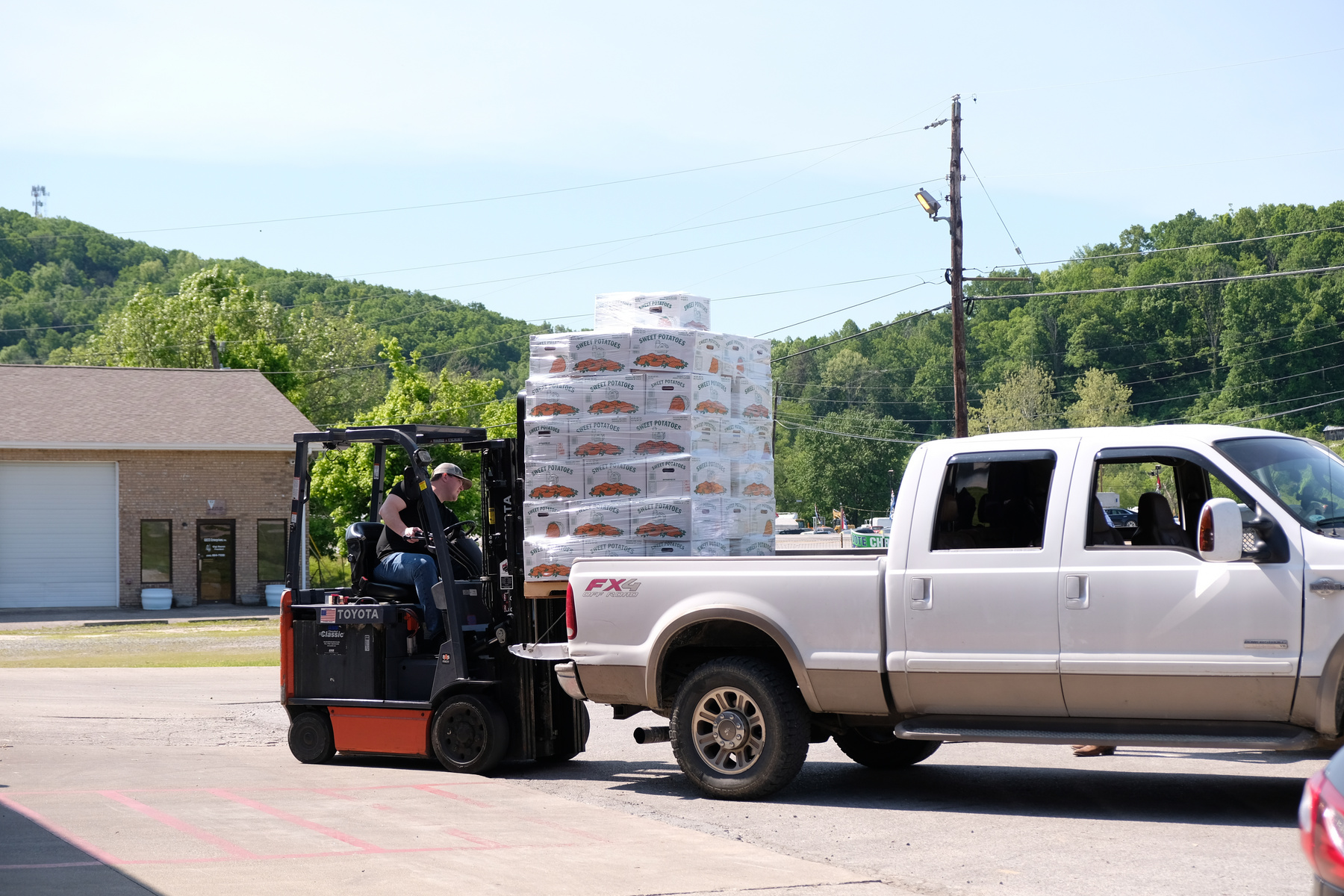
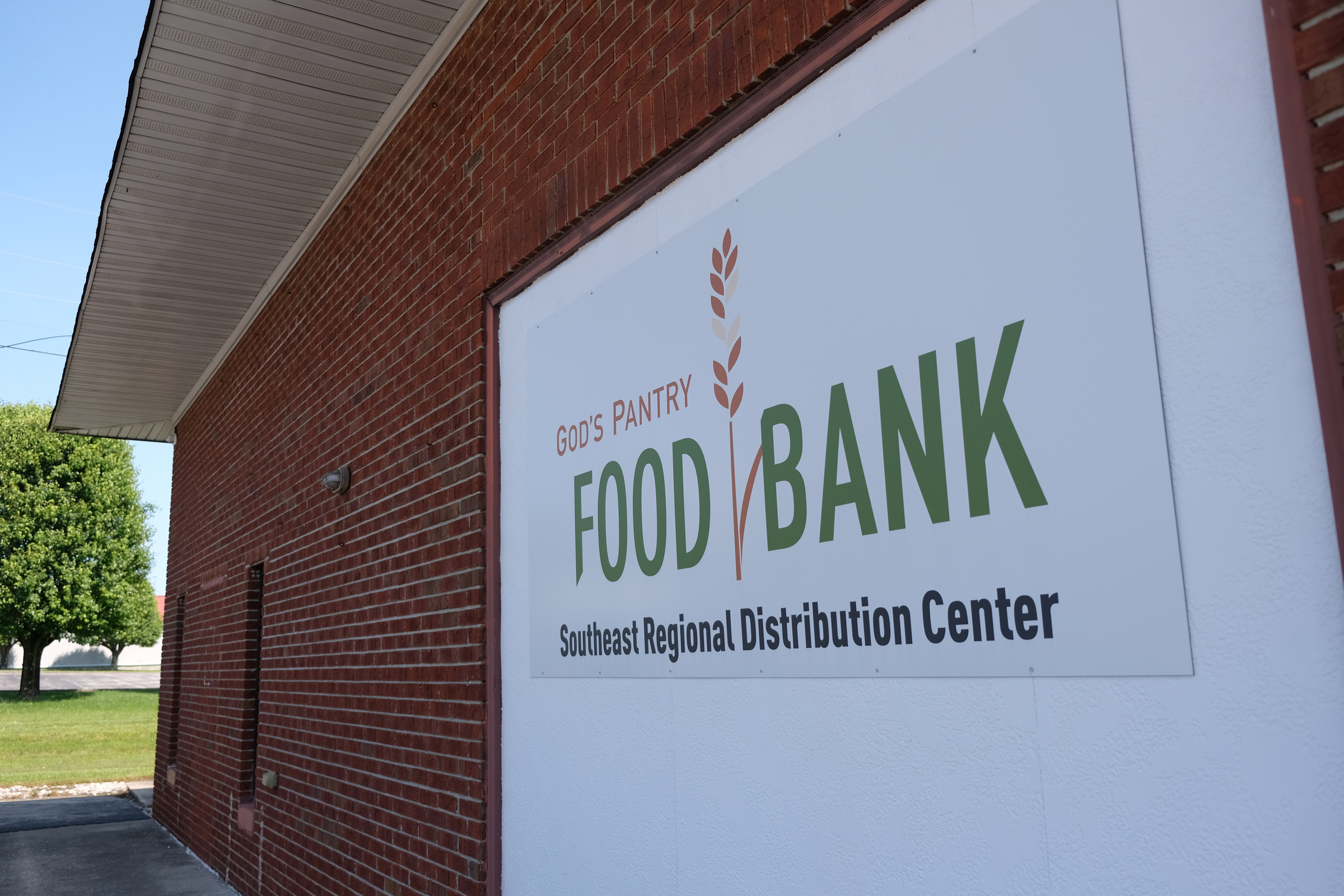
In early 2021, our Energy Team began working with God’s Pantry to find ways to help them save on energy at their facilities. We completed walk-through assessments for their Lexington, London and Prestonsburg locations, providing detailed reports of where they can make upgrades. For example, changing out fluorescent lighting to LED lighting for their London facility will save nearly $2,500 per year. The audits were completed at no cost, thanks to a grant from the Kentucky Office of Energy Policy. “If we reduce costs, especially while other costs are skyrocketing, we can keep the same amount of meals going into communities, or more,” Pope said.
Pope and his team have taken our recommendations and run with them. In April 2022, they changed out the last fluorescent light in the London facility to LED. They have reported better working conditions due to the lighting being easier on the eyes. In addition to the $2,500 in expected savings, they received $1,200 in rebates that helped pay for the upfront costs. We are currently working with them to explore opportunities for solar on some of their facilities. With potential grant funding, solar could save thousands per year on electric costs and put thousands more meals on the tables of Kentuckians experiencing hunger.
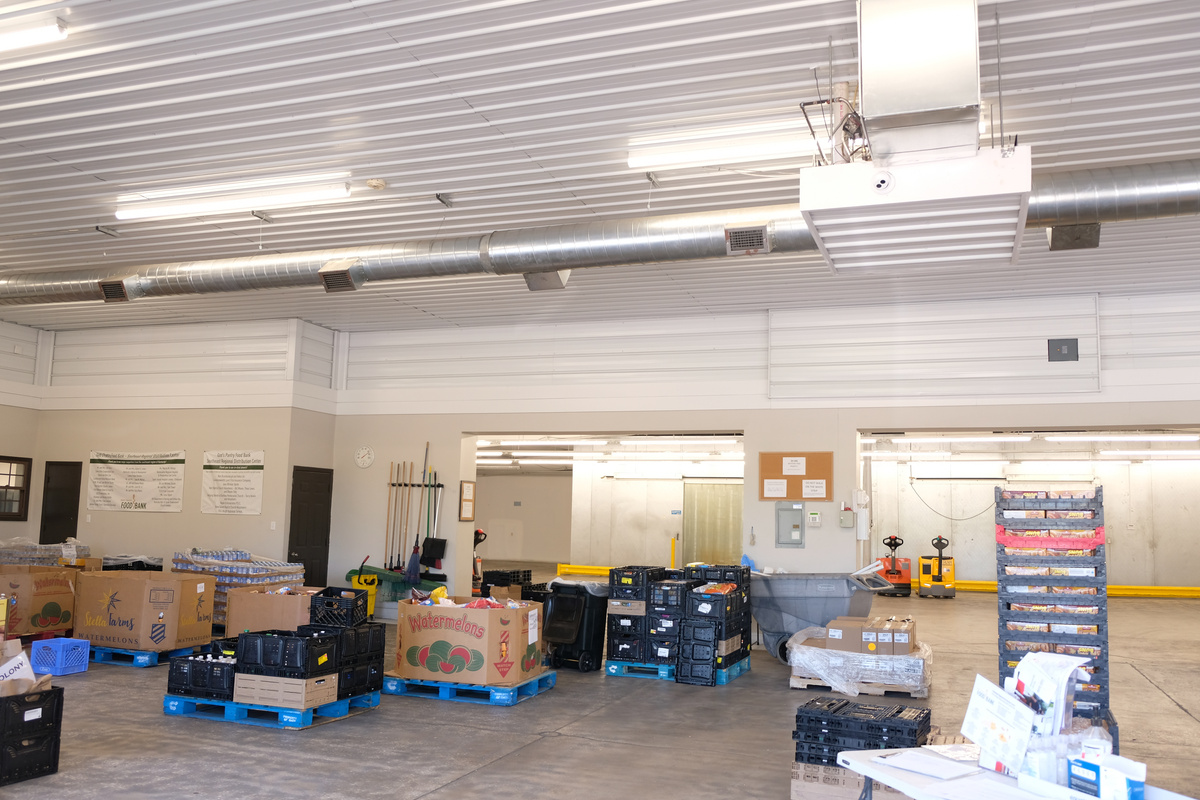
We Supported Nonprofits
with Capacity Building
Over the last few years, we have been working on ways we can support nonprofits that serve Eastern Kentuckians with critically important programs. In 2022, the Small Nonprofit Peers Accelerating Rural Eastern Kentucky (SPARK) Collaborative officially got off the ground for a 12-month pilot. Facilitated by the Mountain Association, the pilot is made up of 16 very small nonprofits who will support and learn from each other over the year. The goal is to help build each organization’s capacity through peer support, organizational assessment, strategic planning, fundraising and grant writing support, and more.
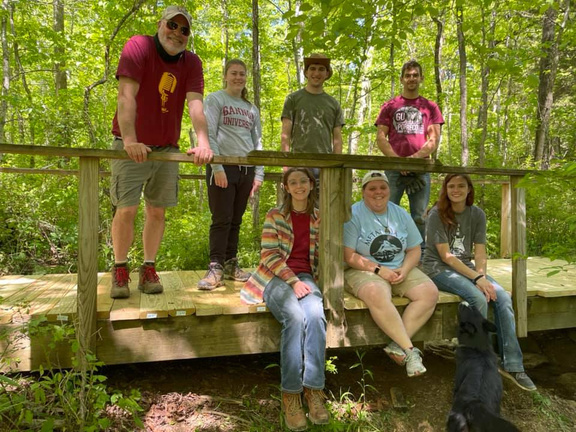
Appalachia - Science in the Public Interest
Mount Vernon, KY
Appalachian Game Changers
Morehead, KY

Berea Makers Space
Berea, KY
Berea Arts Council
Berea, KY

Cowan Community Center
Whitesburg, KY
Early Child Training Center
Berea, KY
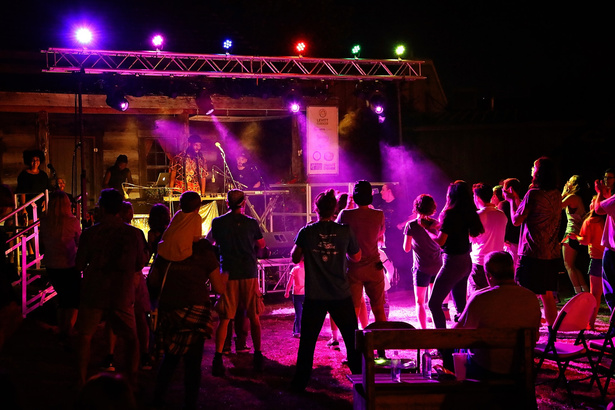
First Friday Berea
Berea, KY
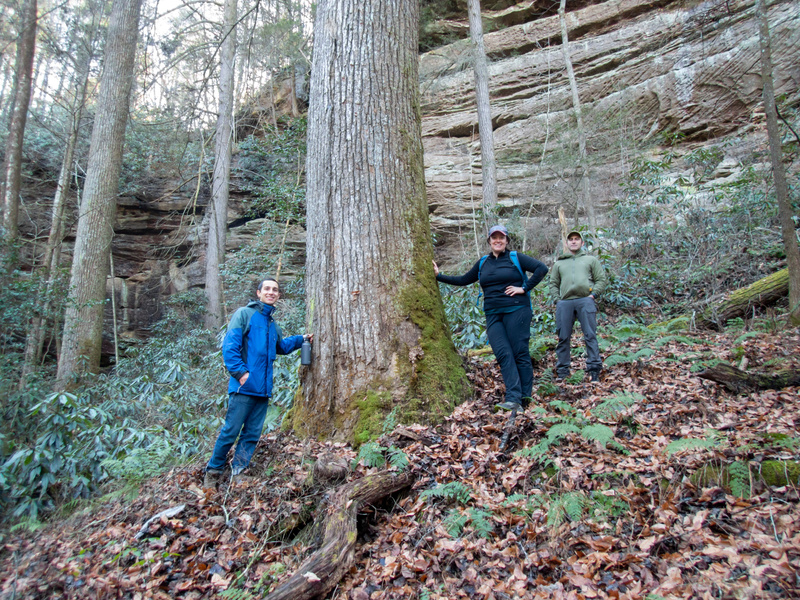
Kentucky Heartwood
Berea, KY
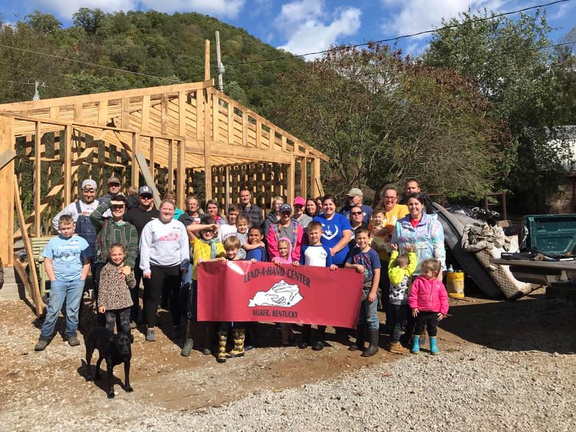
Lend-A-Hand Center
Walker, KY
Owsley County Alliance for Recreation & Entertainment (OCARE) - Booneville, KY
TEK Center Inc.
Martin, KY
The Galaxy Project
Olive Hill, KY
Southeast KY African-American Museum & Cultural Center - Hazard, KY
Thompson Scholars Foundation
Manchester, KY
Unity Allies
London, KY
Warriors’ Path of KY
Olive Hill, KY
We Worked with Communities
to Amplify Their Goals and Stories
Since 2014, InVision Hazard, a citizen-led revitalization group founded with Mountain Association support, has spearheaded a collaborative movement to revitalize downtown Hazard, Kentucky. In 2019, their work led to the City of Hazard and the Perry County Fiscal Court jointly hiring a Downtown Development Coordinator who has overseen record growth in downtown busineses - 46 new businesses in three years - and the repurposing of numerous buildings and spaces.
After several years of research and deep exploration of what it would be like for our organization to undertake downtown real estate redevelopment, we finally made the leap in summer 2022. We purchased a vacant three-story building that has anchored Main Street for decades. The 11,000 square-foot space has been unoccupied since 2016 when the bank that was there moved locations after being in the building since 1960. Built in 1940, it is in need of major repair, including a new roof. We plan to work with local contractors on a complete remodel of the building to develop spaces for business and residential use. Our Hazard office, currently located within the Foundation for Appalachian Kentucky building at 420 Main Street, will also move to the new space once complete. We are looking forward to adding to the momentum in Hazard with this redevelopment project.
Impact
One 11,000 square-foot building
purchased for redevelopment
54 participants across 8 trainings
44 stories about clients and
communities shared
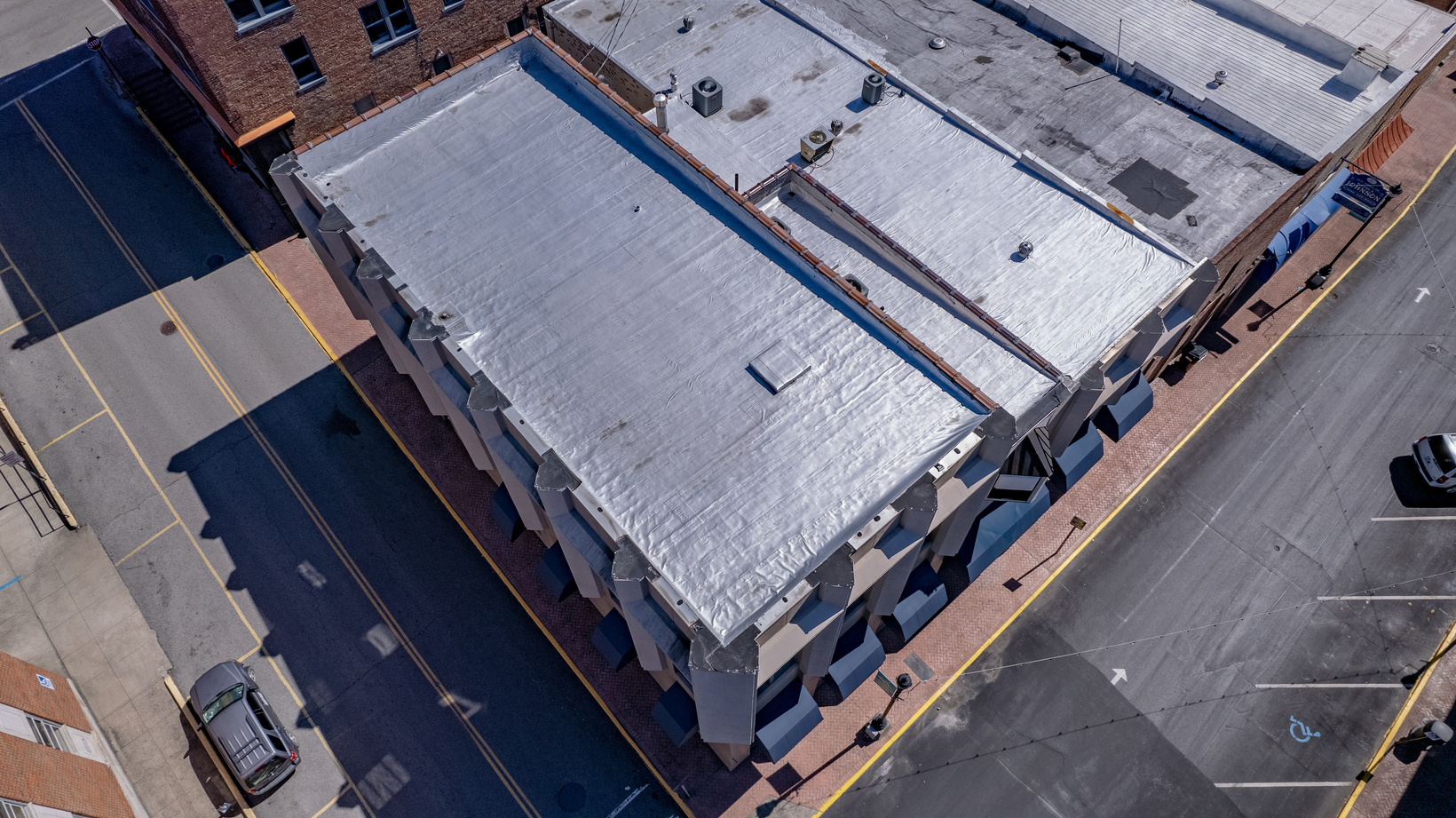
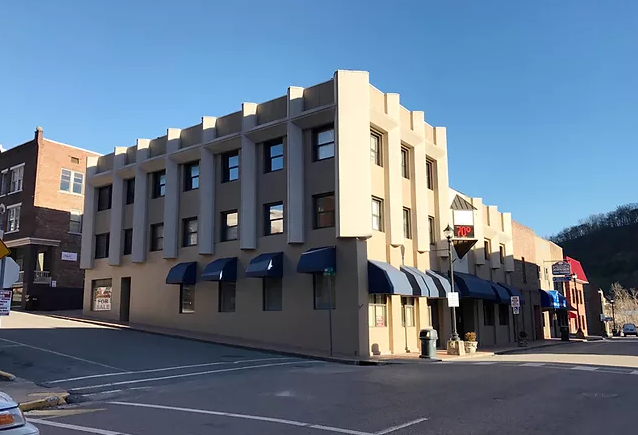
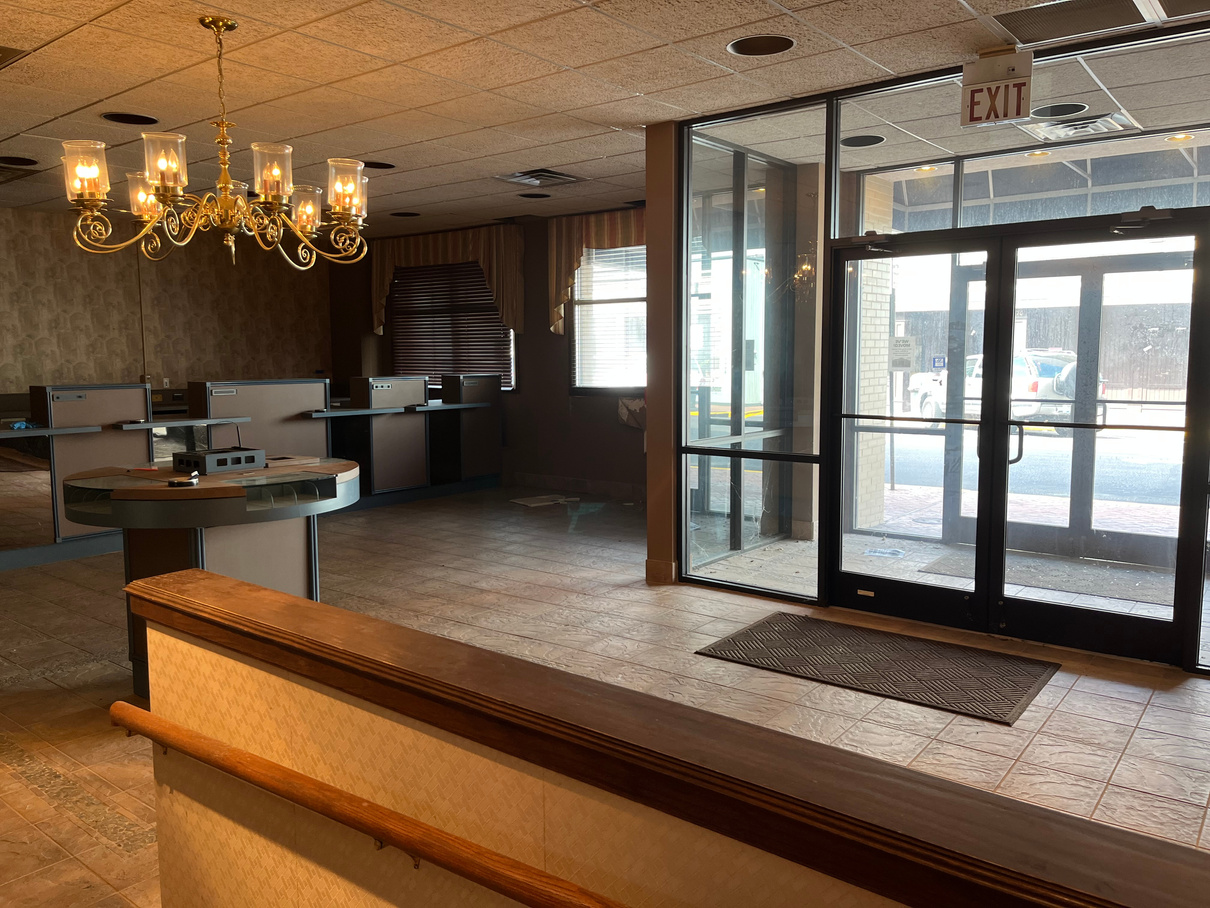
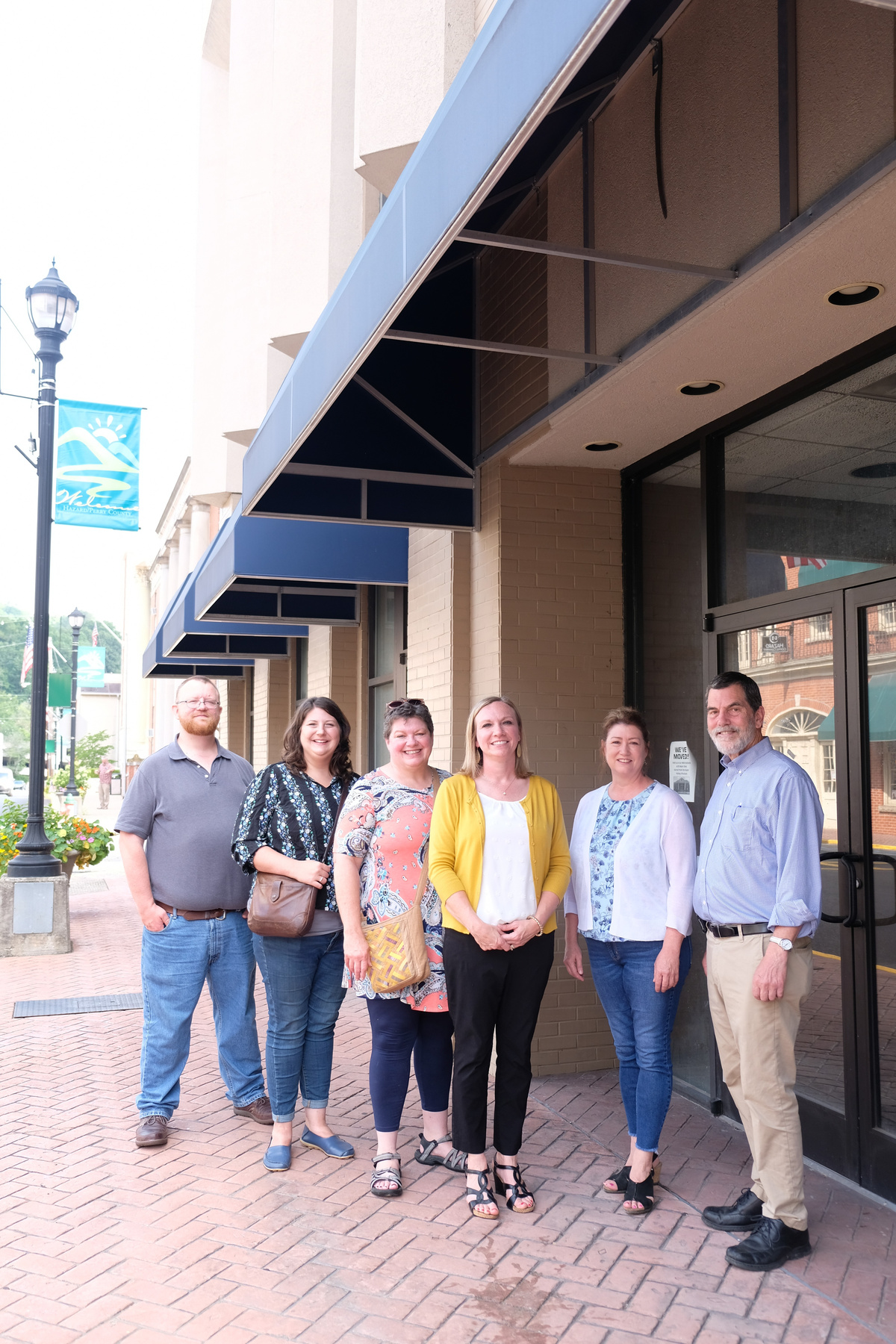
We continue to partner with communities across Eastern Kentucky in a variety of other ways. Mountain Association has been supporting the incubation of What’s Next East Kentucky?!, a grassroots network of community leaders and organizations, since 2018. In 2021, What’s Next East Kentucky?! received its first federal grant from the USDA to pilot a “Community Accelerator” program with Mountain Association serving as the fiscal sponsor. The network continues to gain momentum and is building partnerships to support a regional economy in Eastern Kentucky.
This year we offered six How to Airbnb trainings to meet the need for short term lodging in the region. We also taught a multi-week immersive business course called Kaufmann FastTrac, and a multi-week intensive training on crowdfunding. Crowdfunding participant Grayson Gallery and Art Center was able to exceed their goal of $6,000 in their first campaign.
Additionally, our Communications Team continued building relationships with media makers in the region and beyond, and started a new partnership with the National Trust for Local News and the Kentucky Press Association on how to assist local news outlets with long-term planning for generational and societal transitions.
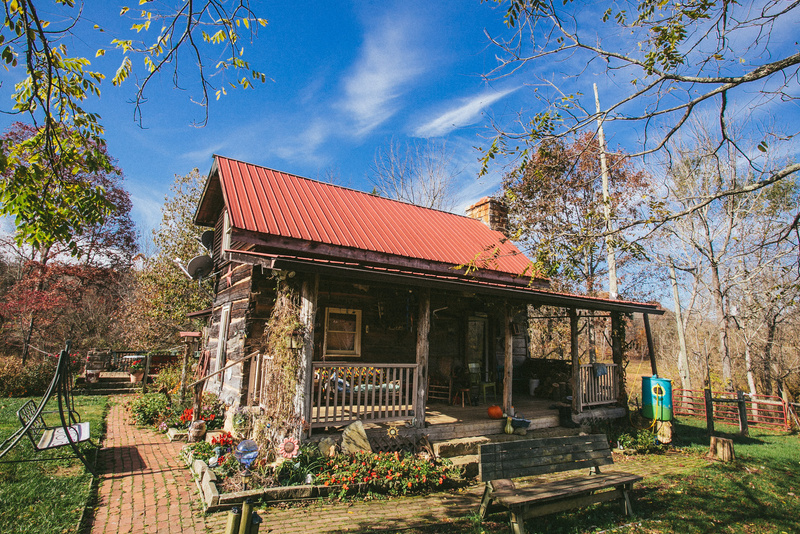

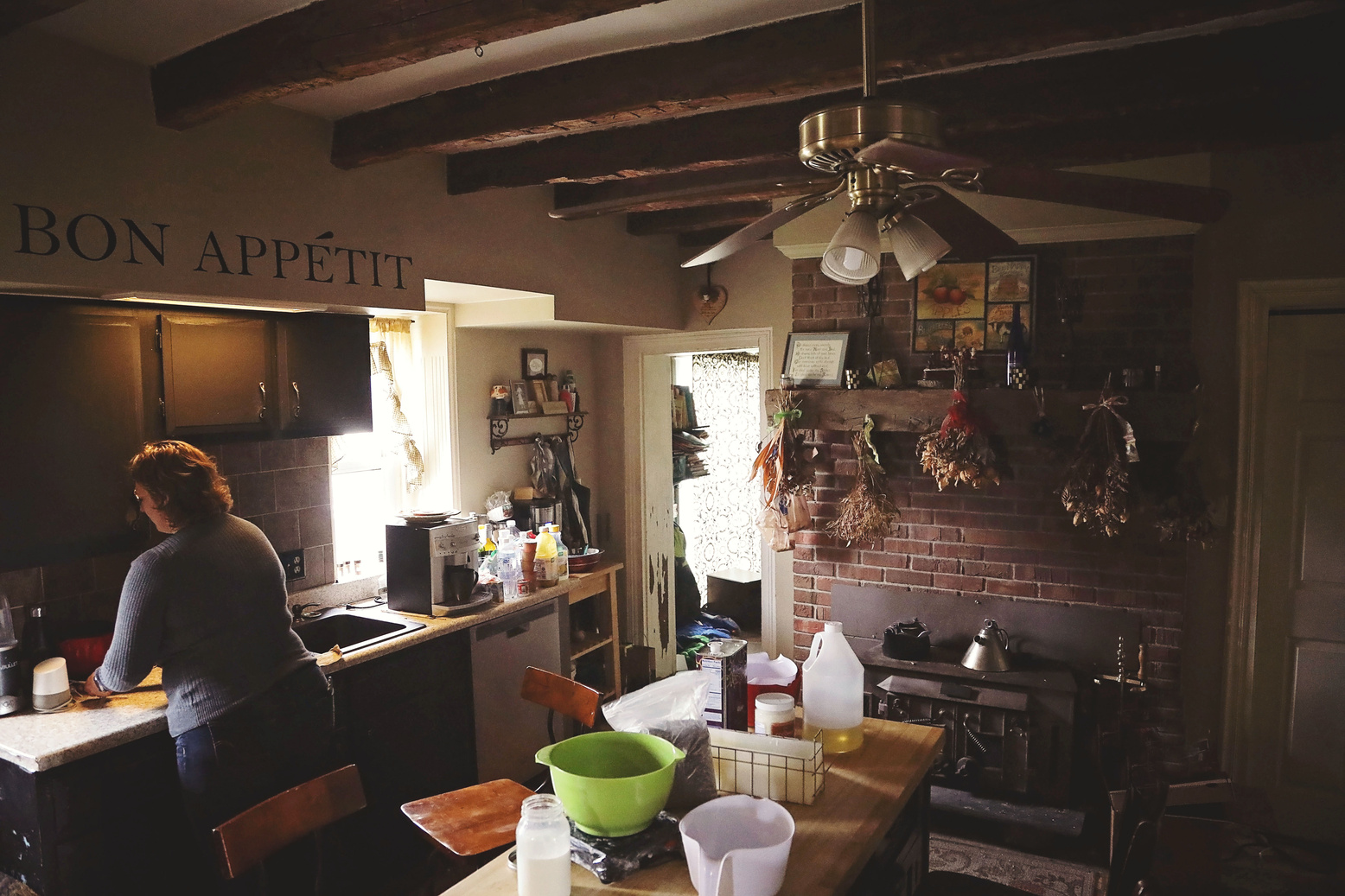

We Continued Our
Work as an Association
A just and equitable economic transition in Central Appalachia cannot be achieved by any single community group, nonprofit, institution, or entity alone. We must work together in interconnected networks to move toward a brighter future. The Mountain Association provides support to networks and nonprofits that are aligned with our mission of advancing a new economy in the region. Specifically, we provide fiscal sponsorship and support for three networks and two affiliates that are advancing just transition in important ways. Central Appalachian Network, Ridgeway Leadership, What’s Next East Kentucky?!, Kentucky Natural Lands Trust, and KyPolicy. We’ve included highlights from our affiliates in this report.
KyPolicy: 10 Years of Research, Education, Advocacy and Leadership on Critical Policy Issues
The Kentucky Center for Economic Policy works to build a thriving commonwealth for all Kentuckians through research, education, advocacy and leadership on critical public policy issues. Working for a Kentucky that is just, equitable, inclusive and prosperous, KyPolicy conducts sound, credible analysis of key policy issues, identifying what they mean for Kentuckians and collaboratively crafting policy solutions. They build support for good policy through clear and compelling communications, and they work closely with partner organizations, community groups, people directly affected by issues and public officials to carry out campaigns for policy change.
In fiscal year 2022, KyPolicy celebrated the 10th anniversary of its founding. Along with dozens of shorter analyses, they published in-depth, influential reports looking at how the degradation of job quality in the public sector, ranging from teachers to social workers, harms communities; how state and local financial incentives to lock up more Kentuckians are perpetuating mass incarceration in the state; and how the historic surplus from the
American Rescue Plan Act provided a once-in-a-generation opportunity to expand investment in public services and infrastructure. KyPolicy also led coalition efforts to protect Medicaid, food assistance, and other safety net programs from renewed legislative attacks, preserving hundreds of thousands of Kentuckians’ access to these vital forms of support.
Impact
63 meetings with decision-makers and public officials
4+ media mentions per week
74 policy analyses published
65 public presentations to 2,900 attendees
153,357 visits to the KyPolicy website

Kentucky Natural Lands Trust Expands Protection of Wildlands Corridor
Kentucky Natural Lands Trust works to protect biodiverse and climate resilient landscapes in ways that help local and regional communities. In the past year, KNLT has successfully safeguarded nearly 1,300 acres of wildlands in Eastern Kentucky that add to the overall connectivity of the Pine Mountain Wildlands Corridor, a 125-mile forested ridgeline stretching from Tennessee through Eastern Kentucky to Virginia.
The recent establishment of the Laurel Gap Preserve near the Kentucky-Tennessee state line in Whitley County, along with the expansion of Salt Trace Gap Preserve and Warbler Ridge Preserve in Harlan County, are a few examples of how KNLT is working towards the ambitious goal of a fully connected wildlands corridor through the region. These protected wildlands are vitally important – they secure forested habitat, safeguard waterways and sustain communities.
Impact
52,500 acres of wildlands protected across Commonwealth since 1995
1,289 wildland acres protected along Pine Mountain in the last 12 months
100+ rare plant & animal species live on Pine Mountain

Financials
The majority of Mountain Association’s funding comes from private grants and contributions (43%), followed by government grants (34%) and financing revenue, including interest and fees (22%), and other revenue, including program income (2%). We dedicate most of our spending to our programmatic work. Full financials are available on our website.
Operating Expenses
Fiscal Year 2022
3.27%
Fundraising
20.75%
Management
& General
75.98%
Program

Thank You to Our Supporters
• Appalachian Regional Commission
• Catholic Campaign for Human Development
• Charles M. and Mary D. Grant Foundation
• William Randolph Hearst Foundation
• Just Transition Fund
• James Graham Brown Foundation
• Kentucky Office of Energy Policy
• Marguerite Casey Foundation
• Mary Reynolds Babcock Foundation
• Opportunity Finance Network
• Rural LISC
• The Chorus Foundation
• The JPB Foundation
• US Small Business Administration
• US Department of the Treasury CDFI Fund
• US Economic Development Administration
And thank you to our many generous individual donors and partners.
